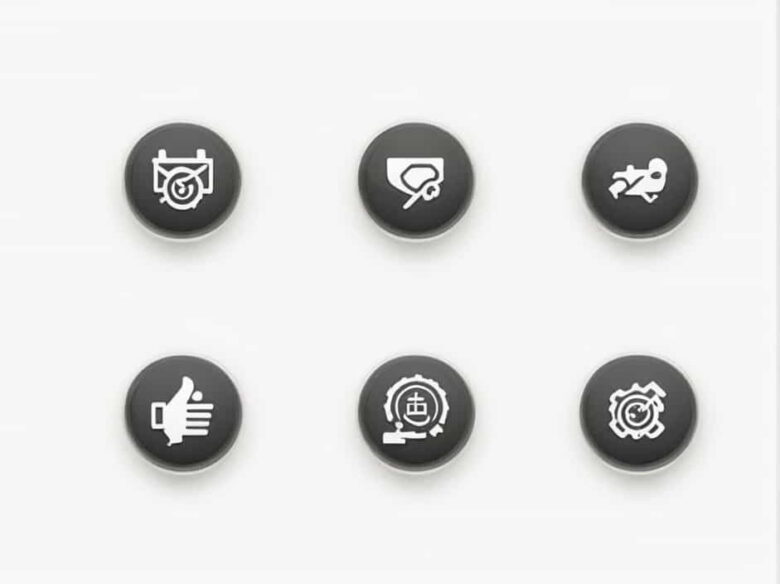An educational diagnostician plays a critical role in identifying and addressing learning difficulties in students. These professionals assess, diagnose, and develop individualized education plans (IEPs) to support students with special needs. To be effective in this role, an educational diagnostician must possess a unique blend of skills, knowledge, and personal qualities.
This content explores the key characteristics of an effective educational diagnostician, highlighting the essential qualities that enable them to provide accurate assessments and meaningful interventions for students.
1. Strong Knowledge of Special Education Laws and Regulations
A highly effective educational diagnostician must have a deep understanding of special education laws, including:
- The Individuals with Disabilities Education Act (IDEA)
- Section 504 of the Rehabilitation Act
- The Americans with Disabilities Act (ADA)
Understanding these legal frameworks ensures that students receive appropriate accommodations and services while protecting their rights. Diagnosticians must stay up-to-date with policy changes and compliance requirements to advocate effectively for students.
2. Expertise in Assessment and Evaluation
Educational diagnosticians are responsible for conducting a variety of assessments to identify students’ cognitive, academic, and behavioral needs. An effective diagnostician must be skilled in:
- Administering standardized and informal assessments
- Interpreting test results accurately
- Identifying learning disabilities, intellectual disabilities, and emotional disorders
- Making data-driven recommendations for intervention
By ensuring comprehensive and unbiased assessments, diagnosticians help educators and parents develop the most effective strategies for student success.
3. Excellent Analytical and Problem-Solving Skills
One of the most critical qualities of an educational diagnostician is the ability to analyze data and problem-solve effectively. Diagnosticians must:
- Examine test results to determine learning strengths and weaknesses
- Identify patterns in student performance
- Develop strategies to address academic and behavioral challenges
- Recommend evidence-based interventions
This skillset enables diagnosticians to make informed decisions that directly impact a students learning experience.
4. Strong Communication and Collaboration Skills
Effective communication is essential for an educational diagnostician. They must interact with various stakeholders, including:
- Teachers (to provide guidance on instructional strategies)
- Parents (to explain assessment results and recommendations)
- School administrators (to ensure compliance with education laws)
- Students (to provide support and encourage self-advocacy)
Collaboration is key when developing individualized education plans (IEPs) or 504 plans, ensuring that all team members work together to support the students success.
5. Empathy and Compassion for Students
An effective educational diagnostician must have a genuine concern for students’ well-being. Many students facing learning difficulties may experience frustration, anxiety, or low self-esteem. A diagnostician who is:
- Patient and understanding
- Supportive and encouraging
- Sensitive to individual student needs
can make a significant difference in a childs educational journey. Compassion helps create a positive and trusting relationship between students, parents, and educators.
6. Strong Organizational and Time-Management Skills
Educational diagnosticians handle multiple assessments, reports, and meetings. To be effective, they must:
- Manage their time efficiently to meet deadlines
- Keep detailed and accurate records of assessments
- Prioritize tasks effectively
- Stay organized while handling multiple student cases
Good organizational skills ensure that students receive timely evaluations and interventions, preventing unnecessary delays in support services.
7. Commitment to Continuous Learning and Professional Development
The field of educational diagnostics is constantly evolving, with new research, assessment tools, and intervention strategies emerging regularly. A successful diagnostician must be committed to lifelong learning, which includes:
- Attending conferences and workshops on special education
- Staying updated on new assessment tools and methodologies
- Pursuing certifications and advanced training
- Participating in peer discussions and networking with other professionals
This commitment helps diagnosticians provide the best possible support to students and educators.
8. Cultural Competence and Inclusivity
Schools are becoming increasingly diverse, and an effective educational diagnostician must be able to assess students from different cultural and linguistic backgrounds fairly. This requires:
- Understanding cultural differences in learning styles and behaviors
- Being aware of language barriers that may affect assessment results
- Avoiding biases in evaluations and recommendations
- Promoting equitable educational opportunities for all students
By fostering inclusivity and fairness, diagnosticians help ensure that every student receives the support they need regardless of background.
9. Technological Proficiency
With the growing use of digital assessment tools, data management systems, and online learning platforms, an educational diagnostician must be comfortable using technology. Key skills include:
- Administering computer-based assessments
- Using data analysis software to track student progress
- Creating digital reports and documentation
- Staying informed about assistive technology that supports students with disabilities
Technology enhances efficiency and helps diagnosticians provide more accurate and accessible evaluations.
10. Ethical Integrity and Professionalism
Confidentiality, integrity, and professionalism are fundamental traits of an effective educational diagnostician. This includes:
- Maintaining confidentiality of student records
- Providing honest and unbiased evaluations
- Acting in the best interest of the student
- Upholding ethical standards in testing and reporting
A high level of professional ethics ensures trust and credibility in the diagnosticians role.
11. Patience and Adaptability
Every student is unique, and some cases may be more challenging than others. An effective educational diagnostician must be:
- Patient when working with students who require extended support
- Adaptable in using different assessment techniques
- Flexible when working with diverse learning needs
The ability to adjust strategies based on individual cases helps diagnosticians provide better support for students.
12. Advocacy for Student Needs
An educational diagnostician is often a student advocate, ensuring that each child gets the resources and support they deserve. This involves:
- Speaking up for appropriate accommodations and services
- Educating parents about their childs rights and available support
- Helping schools develop inclusive education policies
- Encouraging self-advocacy skills in students
By advocating for students, diagnosticians play a crucial role in creating a supportive and effective learning environment.
Final Thoughts
An effective educational diagnostician is a skilled professional who combines expertise, analytical skills, empathy, and strong communication to support students with learning challenges. Their role is vital in identifying learning disabilities, recommending interventions, and ensuring every child has the opportunity to succeed academically.
By possessing a deep understanding of special education laws, strong problem-solving abilities, and a passion for helping students, an educational diagnostician becomes a key advocate for inclusive and equitable education.
For those aspiring to become educational diagnosticians, developing these qualities will ensure a rewarding career dedicated to improving student outcomes and shaping the future of special education.



